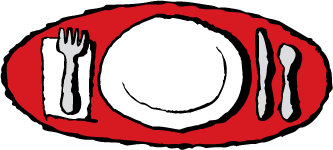The German-Cajun Connection in New Orleans Cuisine
When I was growing up, my mother developed a fairly serious interest in our varied family background. She talked to the family members who held the history of our clan, researched immigration records, and read voraciously of Diasporas, migrations, and family lineage. It is because of this that I know my French-Canadian ancestors were originally Acadians, forced from their homes in eastern Canada by the British during Le Grand Dérangement (also known as The Great Upheaval or the Great Expulsion) in the mid-1700’s.
As was the case with many former Acadians, they fanned south and west, stopping to leave some settlers in the Frenchtown area of what later became Monroe, MI., then moving on to Louisiana. Once there, the language began to drift, and French-speakers who had referred to themselves “les Acadiens” shifted to the abbreviated “le ‘Cadiens”, and dropped the “A”. Later, they encountered native-born Americans who had difficulty pronouncing “Acadien” or “‘Cadien”, and so they became “Cajun.” A new culture was born out of the rich environment of the lower Mississippi Delta, and the happy result is that southern Louisiana is vibrant with a wonderful mosaic of tradition, culture, music, and delicious cuisine. According to my mother, our ancient family names are still prevalent surnames in Louisiana today.
The influence of French-Cajun culture on the cuisine of New Orleans is well documented, but Cajun ancestry also includes British, Spanish, Italian, Native American, Métis, Creole, and German roots.
Wait, (I hear you say) German?
When people think of German heritage in the U.S., the Midwest is one the first places that comes to mind. But, less well known is the impact of German immigrants on the food and culture of southeastern Louisiana. In fact, Germans were among the earliest settlers to Louisiana, and actually comprise the state’s largest cultural group. The first recorded arrivals came in 1722, most hailing from the province of Alsace-Lorraine. This province has been a disputed territory for centuries, alternating between France and Germany, which probably helps explain the ease of assimilation of Germans into the dominant French culture of the area.
The first Germans settled an area north of New Orleans, on the eastern bank of the Mississippi, known as Côte des Allemands (The German Coast). The area was plagued with frequent floods and often hurricanes, but the Germans persevered and became successful enough at farming to be credited with the ultimate survival of the early Crescent City. And the most successful crop they grew was rice.
 Rice was unknown in North America until the 1680’s where it was brought ashore in the Carolinas from British ships bringing goods from Africa and South Asia. The grain adapted well to the warm, wet environments of the southern U.S. and by 1700, South Carolina was exporting hundreds of thousands of pounds of rice annually. Cultivation of rice spread throughout the southern U.S., and eventually made its way to the fertile Mississippi River Delta.
Rice was unknown in North America until the 1680’s where it was brought ashore in the Carolinas from British ships bringing goods from Africa and South Asia. The grain adapted well to the warm, wet environments of the southern U.S. and by 1700, South Carolina was exporting hundreds of thousands of pounds of rice annually. Cultivation of rice spread throughout the southern U.S., and eventually made its way to the fertile Mississippi River Delta.
As the Côte des Allemands began to flourish, the residents began to trade and intermarry with the families of the Acadian Coast further upstream, further assimilating and blurring the lines between their respective ethnic backgrounds in favor of the emerging Louisiana French-Cajun culture. The Acadian Coast families, in turn, began to move further southwest into the low plains and the Atchafalaya River basin region now known as ‘Cajun country.’ Rice cultivation went with them, and thus became a staple for the entire region.
In celebration of the rich culture of New Orleans, Carnival Season, and the upcoming Mardi Gras holiday, the Zingerman’s Roadhouse will hold it’s annual Acadia Parish New Orleans Dinner this coming Tuesday, February 5th at 7 p.m. Chef Alex Young has travelled back to the early 1800’s to create a menu of foods traditional to a German rice plantation farmer’s dinner. Before the dinner, Chef Alex will discuss the history of the region and the inspiration for the menu.
Please join us for this very special event. Laissez les bon temps rouler!
Or perhaps more accurately, Lassen Sie die guten Zeiten rollen…

Acadia Parish New Orleans Dinner
Tuesday, February 5, 7 p.m.
More information & reservations here.




Zingerman’s Art for Sale